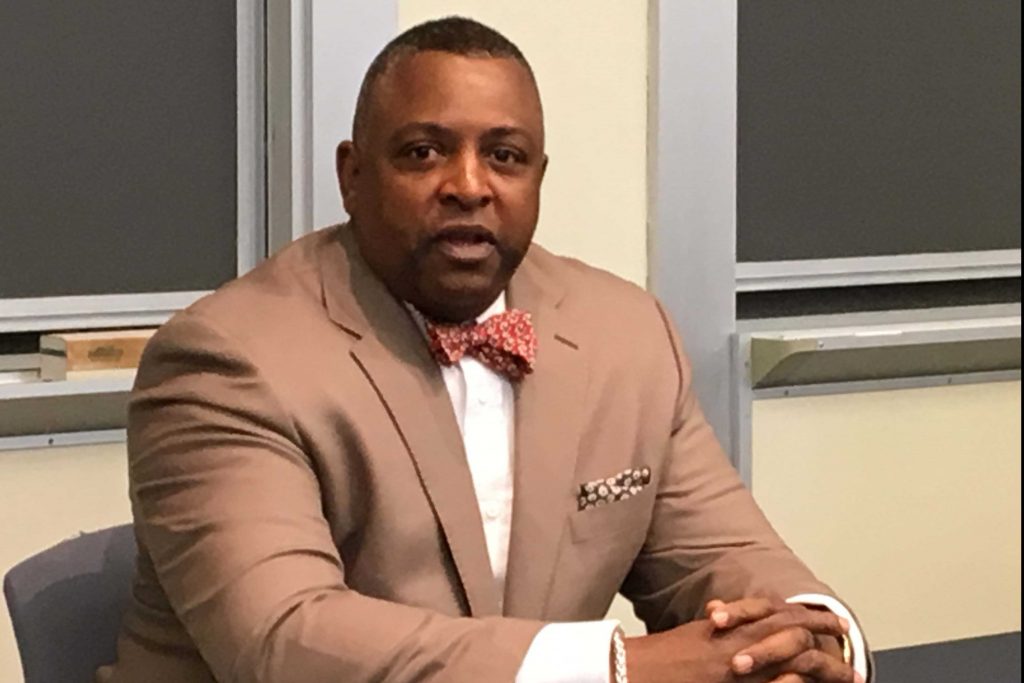Legal careers are not always viewed as pursuits of passion, but it is the very passionate enthusiasm of attorneys and judges that provides the impetus for greater justice and equity. Those who see adversity not as an obstacle but an opportunity gain experiences that instill the profession with the diverse perspectives needed to adequately pursue justice, said the Honorable Kenneth Desmond ’90 of the Massachusetts Appeals Court.
Speaking about careers at a Black Law Students Association event March 13, Desmond stressed the value of keeping an eye out for unexpected opportunities. “I applied for a job with the Corporation Counsel for the City of Boston. Though they didn’t have a job for me, I was told I had the makings of a good prosecutor, and so I ultimately found myself working for the District Attorney’s office of Suffolk County,” he said, “even though I didn’t really know what a prosecutor actually did.”
Beyond the foundational importance of classes in law school, the very best and fastest education is when you’re forced to learn on the job, he said. “You learn very quickly what works and what doesn’t, and the experience you gain can be immediately applied to your career.”
As a prosecutor, Desmond discovered the importance of building relationships inside and outside the courtroom and learned to compartmentalize relationships. “I ran into many of the same defense attorneys in case after case, and it’s important to remain cordial,” he said, noting the smallness of the legal community. “In the courtroom I had my game face on, but I like to think that I remained on good terms with them outside, which was important for a few of my cases.”
Desmond also spoke to the importance of charting a middle course as a prosecutor or judge, putting personal politics aside for the sake of accomplishing as much good as possible. “I was appointed to my first judicial position by Republican Mitt Romney and to the Superior Court by Democrat Deval Patrick,” he said of the two governors, “so I think at least my career is a testament to the possibility of bipartisanship.”
During a question and answer session with students, Desmond said that being a black man and a distinct minority in the legal field has made him feel “as if I have a duty to use my personal experiences to give my colleagues perspectives they might otherwise not consider.”
Furthermore, the challenges he’s faced in his career have affirmed, not diminished his belief in humanity’s great capacity to learn, grow, and change for the better. His work, Desmond said, has given him a view “into the worst of humanity, but also the very best.”


